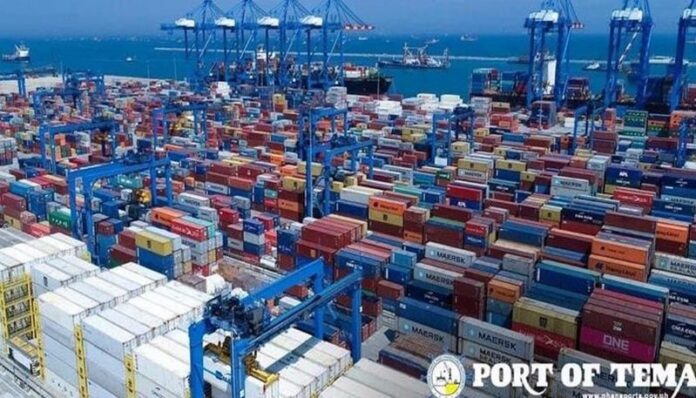Stakeholders operating at the Tema Port are calling on the government to take urgent steps to sanitise operations at the port, warning that Ghana risks losing revenue as importers consider doing business in more efficient neighbouring countries.
The stakeholders — including importers, freight forwarders, business owners, and retailers — say they are all being affected by the current inefficiencies at the port.
They specifically cited avoidable delays by the Ghana Ports and Harbours Authority (GPHA), which often result in the payment of hefty penalties, commonly known as demurrage.
In conversations with importers, exporters, and freight forwarders, complaints were rife about delays reportedly caused by the port authorities. Yet, operators are being charged for inefficiencies they did not create — and it appears their concerns are going unheard.
In an interview with Ohene Amponsah, stakeholders voiced their frustrations, describing the congestion at Tema Port as a serious challenge. They warned that the ultimate burden of these inefficiencies will be transferred to the consuming public in the form of higher prices.
The Executive Secretary of the Importers and Exporters Association, Sampson Asaki Awingobit, acknowledged that although the new Director-General has intentions to streamline port operations, delays in container handling by GPHA are making business both stressful and expensive.
He appealed to the government to act swiftly to reduce delays in clearing approved goods. On the issue of clearing earth-moving equipment, Mr. Awingobit noted that a policy by the Transport Ministry is contributing to further delays. He urged the government to co-clear such equipment while maintaining surveillance, in order to avoid excessive demurrage charges.
Former National President of the Association of Custom House Agents of Ghana (ACHAG), Yaw Kyei, warned of the broader impact on business. He stressed that both stakeholders and the state risk losing substantial revenue if the situation persists.
Mr. Kyei also raised concerns that about 90% of shipping lines are owned by foreigners, meaning the high demurrage fees being paid end up benefiting foreign companies rather than the Ghanaian economy.
He further alleged that after goods and containers are poorly arranged, some officers demand unofficial payments before assisting in locating missing items.
Stakeholders have, therefore, called on the government to intervene immediately and implement long-term solutions to address these challenges.



